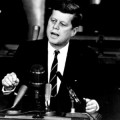
“What is humanitarianism?”
This complex question gets a thorough examination in a new book recently published by SGPIA Professor Peter J. Hoffman.
In Humanitarianism, War, and Politics: Solferino to Syria and Beyond (Rowman & Littlefield, 2018), Hoffman and co-author Thomas G. Weiss (CUNY) take a comprehensive look at the origins of humanitarianism and its evolution over time.
Focusing on the intersections with war and politics, Hoffman and Weiss “trace the origins of humanitarianism, its social movement, and the institutions (international humanitarian law) and organizations (providers of assistance and protection) that comprise it.”
Going beyond the simple understanding of aid in times of unrest, the duo investigate the changing meaning of international humanitarianism. They explore the ways the system has evolved to include regulation of war and prosecution of those guilty of war crimes, a phenomenon they say constitutes “revolutions in humanitarian affairs.”
Using examples that span from the late nineteenth century to contemporary times, they map the origins of humanitarian traditions and theory, tracing the creation of humanitarian agencies and their ever widening responsibilities and spheres of influence – what they call “new humanitarianisms.” They discuss these changes, such as the International Criminal Court and the United Nations’ “Responsibility to Protect” doctrine, while acknowledging that the foundational mandate of humanitarianism continues to expand.
Reviewing the book, Professor Michael Barnett of George Washington University summarizes the enormous challenge taken on by Professors Bachman and Weiss in examining this subject. “Humanitarianism has a complicated history. It is a project that refuses to be a bystander to a world that creates and accepts so much needless suffering. While its motives might be high-minded, the action itself is filled with moral compromises, failures, and human and political limits. This is a difficult story to tell, requiring not cynicism but sobriety along with elements of hope. Hoffman and Weiss’s Humanitarianism, War, and Politics captures this history and its ambiguities. Highs and lows. Accomplishments and failures. And, ultimately, having to make tough and rotten choices.”
It seems the book is well-timed, and well-received. “The early decades of the 21st century have witnessed a profound crisis in humanitarianism, marked not only by the shrinking space within which humanitarian actors now work, but also by declining funding and political support. In Humanitarianism, War and Politics, Hoffman and Weiss give us both an interpretive ‘toolkit’ and historically-informed analysis to explain why and how humanitarianism is under siege,” writes Professor Jennifer Welsh, Chair in International Relations at European University Institute, who is a former Special Adviser to the UN Secretary-General on the Responsibility to Protect. She continues, “the book is essential reading for those seeking to understand the roots of humanitarianism’s current malaise, as well as for those endeavoring to reinvigorate humanitarianism, and enhance its impact, in the years ahead.”
The book is available in hardcopy, paperback and as an ebook online and in bookstores.
***

On September 8, 2000 the United Nations Millennium Declaration was signed by members of the General Assembly. The Millennium Development Goals (MDGs) were established from several commitments outlined in that foundational document. They were a set of 8 development goals and 21 targets intended to increase global living standards by emphasizing infrastructure, human capital and the social, economic and political human rights of all.
It was hoped that all countries would meet these targets by 2015.
In her book, Millenium Development Goals: Ideas, Interests and Influence, (Routeledge, 2018) SGPIA Professor Sakiko Fukuda-Parr, who is recognized as an expert in analyzing development goals, examines the MDG project, which ushered in the era of global quantitative targets driving international development agendas.
Ranging from questioning whether the goals were an adequate tool for achieving the vision of the Millennium Declaration, to their formulation, to the different consequences (in formulation and implementation) on the global South and North, the book is the first comprehensive resource that examines the multiple dimensions of the impact and critiques of the MDGs.
Significantly, Fukuda-Parr puts a critical lens on the contemporary trend of the human rights approach to international development.
“Just like the King in “The Little Prince” claimed to command the sun to set every evening, the MDGs have been credited with results that would most likely have happened anyhow, while obscuring increased inequalities and structural causes. A privileged witness and participant, Sakiko Fukuda-Parr brilliantly documents in this book two decades of development practice and narrative and draws unavoidable conclusions,” says Roberto Bissio, coordinator of Social Watch, in his review of the book.
Columbia University Professor José Antonio Ocampo, a former UN Under-Secretary-General for Economic and Social Affairs writes that the book “holds important lessons on the use of global goals, and it is a must read in the era of the SDGs launched by the UN in 2015.”
Millenium Development Goals: Ideas, Interests and Influence is currently available in hardcopy, paperback and as an ebook online and in bookstores.
For more information about student, faculty and alumni work, follow @Newschool_IA on Twitter.




